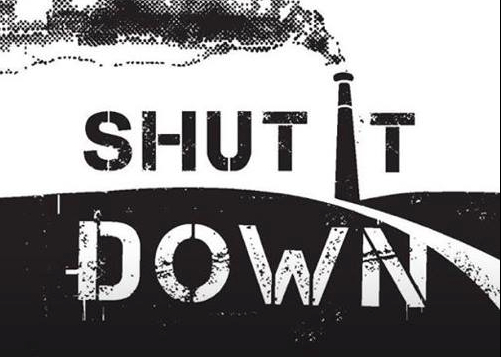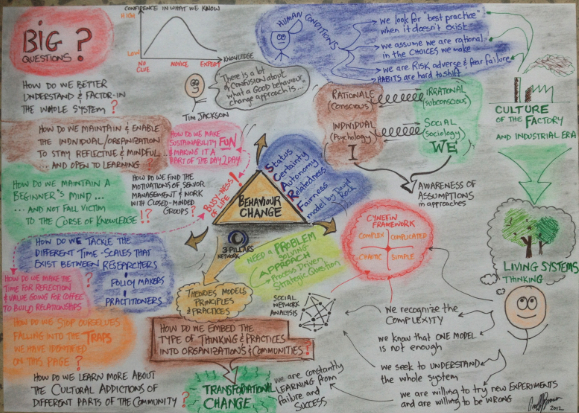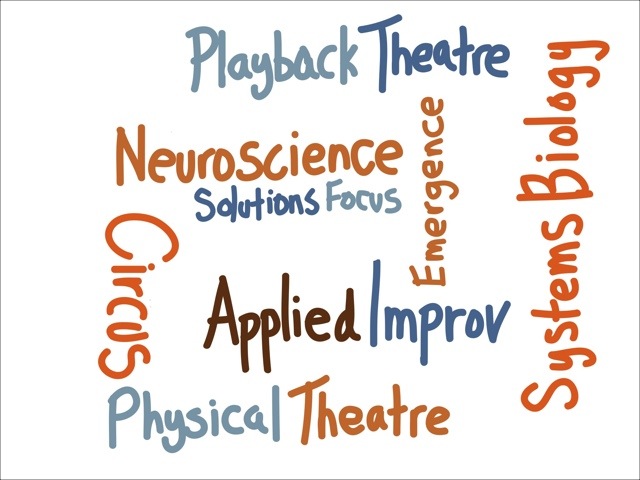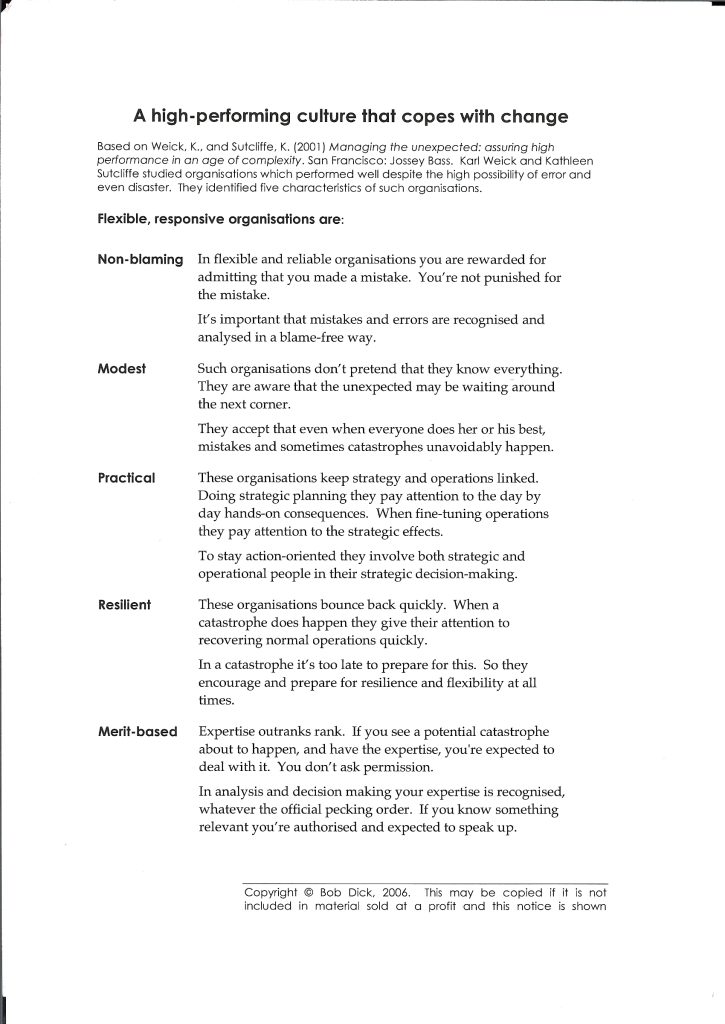Archive for the ‘Brain Science & Research’ Category
SCARF for social activists
Filed in Brain Science & Research, Community & Belonging, Facilitation, Leadership
I am not a huge fan of ‘ACRONYM’ models, but this framework – called SCARF – from neuroscientist David Rock is one of the more useful ones. As many of us, within the Anglesea and surrounding communities, unite to SHUT DOWN the Anglesea power station, we discover that some people see the world differently to us. It’s easy to take the moral and intellectual high ground and say “We’re right and they’re wrong!” … but that sort of thinking will never unite a diverse community of divergent views. Applying the SCARF framework to our engagement strategy will help. Here is …
Read MoreGraphic Harvest with Narration
Filed in Brain Science & Research, Creative Stuff, How Stuff Spreads & Changes, Sustainability, Vizual Thinking
I am currently facilitating a series of conversations between a group of people who have joined the 3 Pillars Network Active Learning program. The core purpose of this program is to connect people from all over Australia who work in the field (if you can call it field?) of behaviour change for sustainability. The idea is to promote learning between practitioners, researchers and those in policy. Last week I drew a map of the key things I remembered from the conversations. I love creating these maps after reading books and listening to TED talks. It helps to make links between …
Read MoreDivergent ideas form a Convergent whole
Filed in Brain Science & Research, Facilitation, Living Systems & Complexity, Yes!And Improv
My last post described a game called Werewolf that I hosted for a group of people who, collectively, comprise an organisation. I worked with this team of people for 2 days. Day 1 was playful and Day 2 allowed the group to reflect on it’s own purpose and principles of working together. Here are a set of resources that informed my processes and some of the thinking skills I brought to the group. On Day 1 we played applied Improv games and learnt through a process of immersion in direct experience Direct References – these ideas were shared directly with …
Read More


